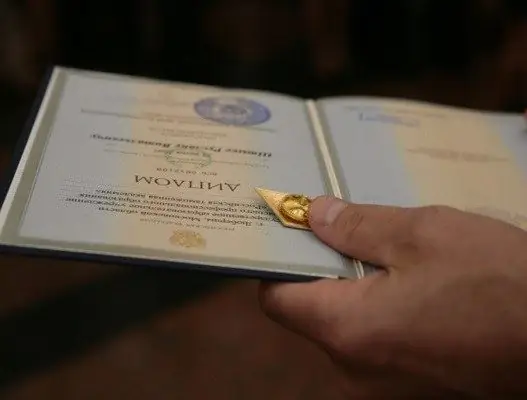Much is being said about the inefficiency of the work of universities. One of the most important indicators of the effectiveness or inefficiency of an educational institution is the demand for its graduates, expressed in employment. From this point of view, the situation can be called catastrophic: there are more and more people who, after graduation, do not go to work in their specialty.

This situation may seem strange: for 5 years a person spends time, effort, and sometimes money on getting an education - and all this turns out to be in vain. Unfortunately, there are many reasons that can lead to this.
Employment
Refusal of employment in a specialty is not always voluntary - many graduates are unable to find work in their profession. Universities have abandoned the distribution system for a long time. To a certain extent, she infringed on the freedom of graduates, but she still guaranteed employment in the specialty. Now graduates have to solve the problem of finding a job on their own.
The most difficult thing is to find a job in specialties that are considered "prestigious". Acting on the principle of “demand creates supply”, universities are increasing the enrollment for these specialties, as a result, the number of graduates significantly exceeds the demand in the labor market, and many young specialists remain “overboard”. The first to face this were graduates of law and economics faculties.
Voluntary refusal to work in a specialty
Even an adult, experienced person does not always objectively assess their abilities and capabilities, what can we say about a 17-year-old boy. A person can get carried away by any profession, enter the appropriate university, and then understand that this is not his vocation. Some students get a visual idea of their future work only in practice, which happens in the last courses, at the "home stretch", when it is already a pity to leave the university without finishing.
In some cases, a person enters a university knowing in advance that he will not work in his specialty. An entrant - yesterday's schoolboy - is financially dependent on his parents and is forced to obey their requirements, and they often enter universities not at will, but at the insistence of their parents. Even if such a person, after graduation, gets an unloved job (also at the insistence of his father or mother), he will not stay there for a long time.
Some applicants, thinking about their future, initially incorrectly put the question: not “who to work”, but “where to go”. Especially often young men argue this way, for whom studying at a university is a way to avoid serving in the army. However, girls can also strive to enter "somewhere", because "everyone does." With this approach, a person chooses the university and faculty where it is easier to enter, where there is less competition - and this is not always a specialty in which he is really able to work. Such a student can study at a pedagogical university, knowing in advance that he cannot or does not want to be a teacher.
There are many reasons, but the result is one - wasted effort, time and money (own or state).






